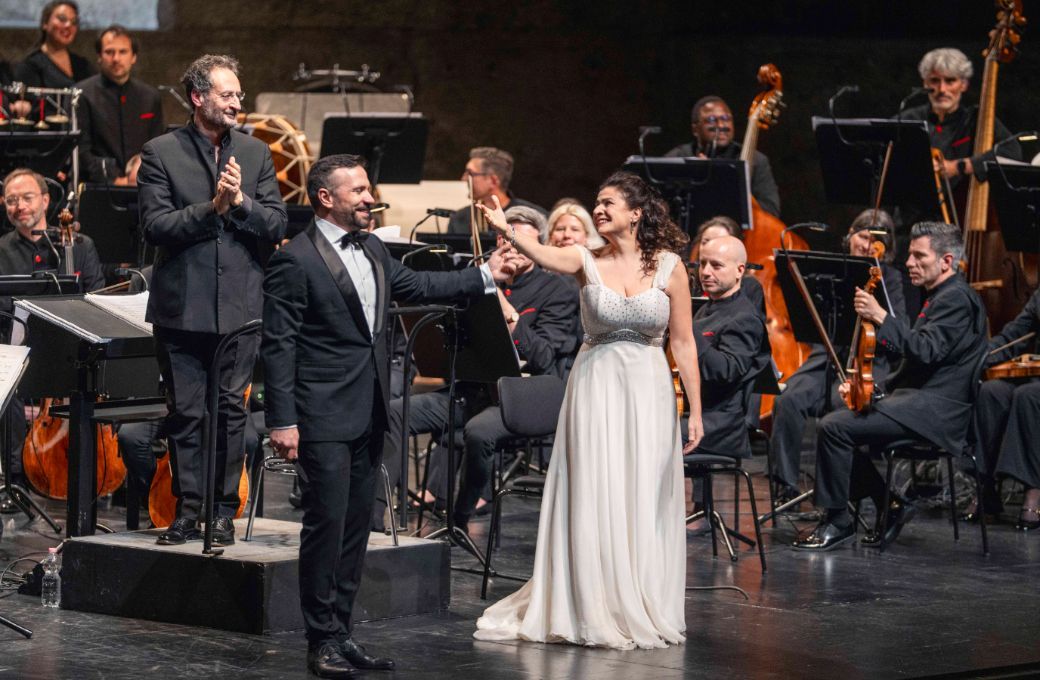The Salzburg Whitsun Festival, celebrating the city of Venice, concluded with a gala concert honoring Gioachino Rossini. The program featured excerpts from operas that premiered in the lagoon city, as well as works whose stories unfold there. The festival’s artistic director, Cecilia Bartoli, is one of the most distinguished Rossini interpreters of recent decades. Having performed many of the mezzo-soprano roles Rossini composed – often for his wife, Isabella Colbran – Bartoli owes much of her illustrious career to the great composer.

Gianluca Capuano conducted an orchestral ensemble combining Les Musiciens du Prince and members of the Würth Philharmoniker, delivering a performance of remarkable style and elegance that reflected his profound insight into Rossini. He knows that a Rossini crescendo doesn’t need to be actively "done" – it unfolds naturally. It's written in the score, in the use of instruments. The musicians need simply to allow it to emerge, and when it does in this way, the result is pure magic.
The concert opened with Bartoli performing "Di tanti palpiti", the celebrated cavatina from Tancredi – Rossini’s first major opera seria, which premiered in Venice in 1813. To this day, the aria remains one of his most iconic melodies. Bartoli, with her peerless legato and flawless coloratura, reaffirmed her mastery in this repertoire, delivering a performance of sheer brilliance.
Bartoli curated an ensemble of colleagues, each taking turns in presenting Rossini’s arias and scenes. Mélissa Petit brought a silvery, luminous soprano to Amenaide’s cavatina from Tancredi, while later she delivered a transcendent performance of “Giusto ciel” from Maometto II – a radiant prayer that showcased her flawless legato and masterful breath control.
Giorgi Manoshvili delivered a robust account of Assur’s mad aria “Il dì già cade” from Semiramide, backed by the chorus. His smooth bass boasted formidable power, though one might have wished for greater refinement – a quality that may yet come with maturity.
Sergey Romanovsky began with “Ah! Sì, per voi già sento” from Otello with some hesitancy but soon gained conviction. Joined by Bartoli, he plunged into the murder scene with harrowing intensity. The sequence opened with Desdemona’s grief-laden willow song, “Assisa a piè d’un salice”, which Bartoli imbued with devastating pathos. Romanovsky’s Otello then erupted in fury, his tenor blazing with violent resonance, high notes flung at Desdemona like daggers. A performance of searing theatricality.
The concert's second half saw the chorus and orchestra shift into higher gear. The triumphant "Ergi omai la fronte altera" from Semiramide and the sweeping overture to Maometto II emerged as highlights, delivered with thrilling precision. The evening culminated in L'italiana in Algeri's famous concertato "Nella testa ho un campanello", taken at a breakneck tempo that electrified the hall. A generous parade of encores – dominated by Il barbiere di Siviglia selections and delivered with sparkling wit – sent the audience home beaming, their heads still ringing with Rossini's irrepressible joy.


